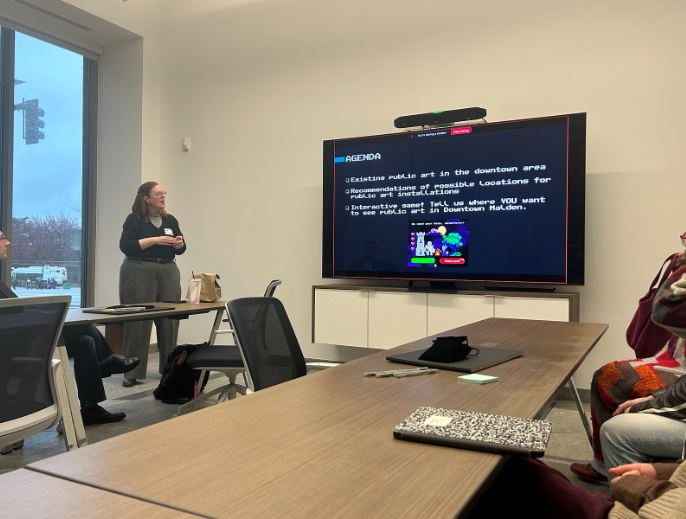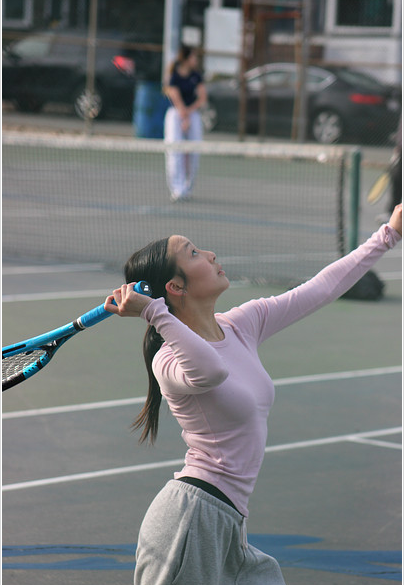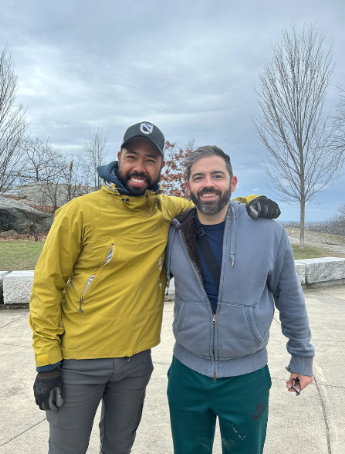
As one of the most diverse high schools in the nation, Malden High is the source of education for so many communities of all different backgrounds. Around 20.3% of the student population is Asian, according to Enrollment Data (2024-25) – Malden High (01650505). However, despite diversity being one of the greatest strengths of the school, its World Language department currently only offers Western languages.
In efforts to change this, the Greater Malden Asian American Community Coalition (GMAACC) strives to expand the World Language department and implement Asian language courses that reflect a significant portion of Malden High’s student body.

Annabel Shu, the youth organizer of the grassroots, community-led nonprofit, explained that the goal of the overall project is to “build educational equity at Malden High School.”
“We want to do this by advocating for culturally relevant language classes that reflect the population of Malden and MHS. While this includes Mandarin Chinese, we also hope to push for Portuguese, Viet, and Haitian Creole, among others. However, we know that Mandarin has a lot of buy-in from schools already, so it may be easier to push for this kind of pilot or short-term language class now,” she explained.
The intended deadline of the project is by next year. “Our campaign is focused on getting Mandarin language classes in Fall 2025. The funding from the state for the school district this year is significantly higher than it was last year,” she continued.
This comes at a time when the graduation requirements for students have changed to needing two years of a world language. Shu remarked, “if the language requirement is increased, we need smaller class sizes and increased classes.”
Included in the plan to advocate for a Mandarin language class is also increased financial support for teachers, mental health support for students, and support for antiracist education.
The youth leads decided on this project together after visiting GBLS and the Asian Outreach Center, where they discussed how to build community power, and meeting Elena Martinez, the City Hall language access coordinator. After voting, they decided on language courses as their final project.
Junior Meng Yao Huang, one of two project leads, explained her role: working to reach out to different people, negotiating meetings, creating slides and posters, and collaborating with the other youth members to strategize their project step by step.
“Ever since I was a freshman, I wanted to take an Asian language course to fulfill my language class requirement. I was upset that my only option was a Western language, so this project idea popped into my mind,” she explained.
Senior Shawn Chen, the other project lead, remarked, “One of the most attractive things about Malden is its diversity, and that’s very represented in Malden High’s student population. You’ll notice that in Malden High School, there are a lot more students of color in diversity. And we think that by implementing a new language language course curriculum, students will be able to have access to a class that is more representative of them… School curriculums should be representative of students’ needs and identities.”
A big issue among Asian Americans, especially the younger generations, “is that a lot of us aren’t really connected to our language as much as we should be. Many people, myself included, don’t know how to speak or write, or many of us speak at a very minimal level, and most of us don’t even know how to read or write,” Chen highlighted. Having a course that allows students to “understand their culture more and be able to communicate with people such as their parents better,” is highly beneficial in the long run.
In recognition of the staff shortage, GMAACC intends to introduce an introductory level of an additional Eastern language course. If successful, they hope to move forward with extra levels, including an Advanced Placement level, as it is offered at the college level and many other schools.
In terms of who would create the class curriculum, Chen explained that it would be primarily the school. However, he is currently working on a curriculum outline based off of his Chinese 101 and 102 class at Bunker Hill Community College (BHCC). “At the most, it’s a layout of what the course would be like, just to show that it is possible and very easily implemented,” he detailed.
Chen described his takeaways from taking Chinese courses through the school’s option to enroll in BHCC’s Dual Enrollment classes: “teaching not just the language itself, but also the culture that revolves around it is important because many people misjudge cultures, which leads to problems such as racism and stereotypes.”
As founder and president of Malden High School’s Asian Culture Club, Gordon Zeng also expressed being in favor of the expansion of languages. “Especially for people like me who are American-Born-Chinese—or ABCs—or even anywhere born Chinese… We feel kind of disconnected from our culture… so I find that having these Chinese courses and that foundational Chinese background is extremely beneficial.”
Zeng, who also takes Chinese courses with BHCC Dual Enrollment, described its limitations: “We’re only taught up to elementary Mandarin… after taking those two courses, I still feel kind of limited in my abilities. Having an in-person, physical Chinese course at Malden High School would make it more convenient” and “allow me to engage in more conversational discussions that hopefully enrich my Chinese abilities.”
Zeng acknowledged the work of his club and nonprofit organizations in the Greater Boston Area that work to promote Asian culture, but also highlighted the significance of starting early in bringing people together: it “really starts with the youth and students like us and I think a great stepping stone for that would be importing these Chinese courses.”
Currently, GMAACC has already advertised this project to a small portion of the student population, interviewing and surveying students in person and uploading their responses to a database. According to Chen, the ratio in favor is 90% to 10%. Next, they plan to hang up posters, posting on the GMAACC social media account, and spreading the word.
After contacting different community organizations, the superintendent and several city councilors, GMAACC plans to discuss different criteria such as classroom availability, funding issues, and finding a teacher who will meet the necessary requirements. Eventually, they look forward to discussing this project with the mayor and school principal.
As the project is still a work in progress, Chen explained that the youth members are on a rotational basis, meeting throughout the week and whenever available to the school committee. The nonprofit organization just met with the school committee last week.
“We look forward to continuing to push for this project and seeing it become a reality one day,” Huang remarked.
“If you’re interested, please sign our petition at http://bit.ly/2025gyl and spread it to your friends and family! We’re looking for support from everyone who lives in Malden, not just students,” Shu concluded.



